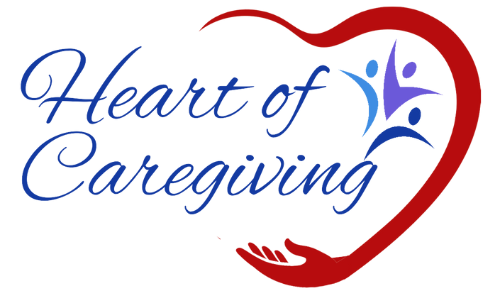Eight Ways to Show Caregiver Appreciation
March 3 is Caregiver Appreciation Day! On this day, we celebrate and recognize paid and unpaid caregivers who devote time, energy, and love to care for aging and ill persons across the U.S. It can be challenging to know how to show appreciation for the folks caring for our family members. Paid professional caregivers help us with intimate care, yet we may know little about them. A card or gift card is a wonderful way to offer an extra thank you.
Our intention to show appreciation to a friend, colleague, or member of our family caring for a family member can result in uncertainty paralysis; how can we help? The same paralysis can occur for the caregiver when you ask how you can help. The request can add to overwhelm, and decision fatigue and much-needed help is declined.
Here are a few suggestions for March 3 and year-long gestures of support and appreciation for family caregivers. If you are a family caregiver, add to this list, share it with family and friends, and keep it with you to reference when someone offers help.
Listen without judgment
Caregiving takes a physical, mental, and emotional toll on family caregivers. They often feel unseen and can feel unfairly judged when they share the struggle. Listen, and rather than jump in with an opinion or solution, identify the emotion, connect by validating their feelings, and demonstrate that you recognize that what they are going through is hard, really hard.
Offer or arrange respite
Respite is a break from caregiving’s emotional, mental, and physical responsibilities. You can sit with their care recipient for an hour or a few and allow them to take time for their well-being. A break from the worries might be a walk around the block or give them a chance to make a wellness visit that has been postponed due to competing priorities. Could you help coordinate and schedule a combination of paid and volunteer caregivers so that they could arrange a weekend or a week away? Is there a care home in the area that can take their family member for a week?
Give a gift to inspire self-care
Caregivers most often prioritize their care recipient’s well-being over their own. They may have given up hobbies and interests and replaced them with running errands, managing a second household, and doctor’s visits. A gift of self-care will help them reconnect with their passions and immerse in interests in short time blocks. Another way to think about a self-care gift is something that re-energizes or offers a few minutes of relaxation.
Give a caregiver guidebook
Many excellent caregiver guidebooks are available; you don’t need to limit your choice to a single book. I recommend 21 Mistakes Caregivers Make & How to Avoid Them: Solutions and Strategies to Reduce Stress and Increase Happiness. It is a comprehensive guide that empowers caregivers with solutions and action plans. I made each one of these mistakes and speak from personal experience. Caregivers feel seen when they hear my story and know they are stronger when we acknowledge and share our vulnerabilities. We learn from each other and, with community, can navigate our journey to maximize memories and minimize regret. Another option is to share the link to the FREE Caregiver Tools available on the Heart of Caregiving website.
Say, “Thank You!” and share specific examples
When you express appreciation to a family caregiver, it can inspire intense emotion. It is so rare that a family member feels seen in a way beyond an extension of their care recipient, and it can catch them off guard, so be prepared for tears, stammering, or stunned silence. Let them know that you see them by sharing specific observations. Let them know that you recognize the sacrifice they are making and know that it isn’t easy.
Offer a service and be specific
Rather than ask, “How can I help?” offer to cut the grass or do it. Don’t forget the trimming. Bring a meal or give a delivery service gift card. Could family members chip in and pay for a meal delivery service account? What are your unique skills, and how could you use them to assist? Could you help by organizing a space in their care recipient’s home? Offer to go grocery shopping or do a pharmacy run. Help them locate a support group or other care support services.
Coordinate a visit
Family members and friends often distance when caregiving becomes more intense. Schedule a time to visit. Your presence is a present when caregiver and care receiver feel alone and isolated. It can feel like life goes on, but they are left behind to focus on fears and challenges. A visit is a simple way to make a significant difference in their day.
Flowers, candy, fruit, nuts and more
Does your favorite caregiver have a favorite flower? Are they partial to sweet or savory treats? Would a protein gift basket provide much-needed energy options? A sleep-themed basket could help them capture elusive ZZZs. A journaling-themed basket can provide the tools to capture memories, release worries, and process emotions. A journaling-themed basket could include gifts to create a setting that will inspire the activity. A journal, colorful pens, an adult coloring book, a blanket, and a mug could be included.
Get Started
As Rosalynn Carter said, “There are only four kinds of people in the world. Those who have been caregivers. Those who are currently caregivers. Those who will be caregivers, and those who will need a caregiver.” We all have or will have a connection to care. Take a minute to reflect and think about the caregivers in your circles and set an intention to connect with them in a meaningful way. Any gesture of recognition and gratitude will be appreciated!
For more solutions to caregivers’ common mistakes, check out 21 Mistakes Caregivers Make & How to Avoid Them: Solutions and Strategies to Reduce Stress and Increase Happiness, available on Amazon!
The advice offered is for general information only; please get in touch with your healthcare team and legal or financial advisors to guide you in your particular situation.

